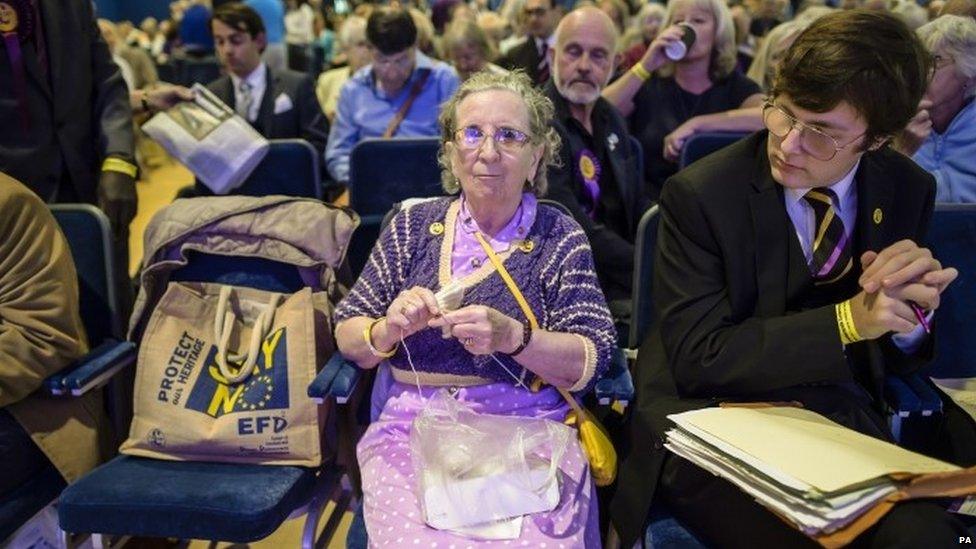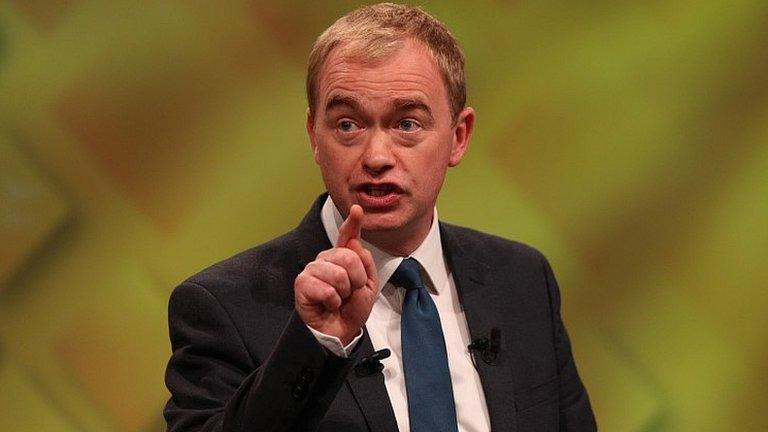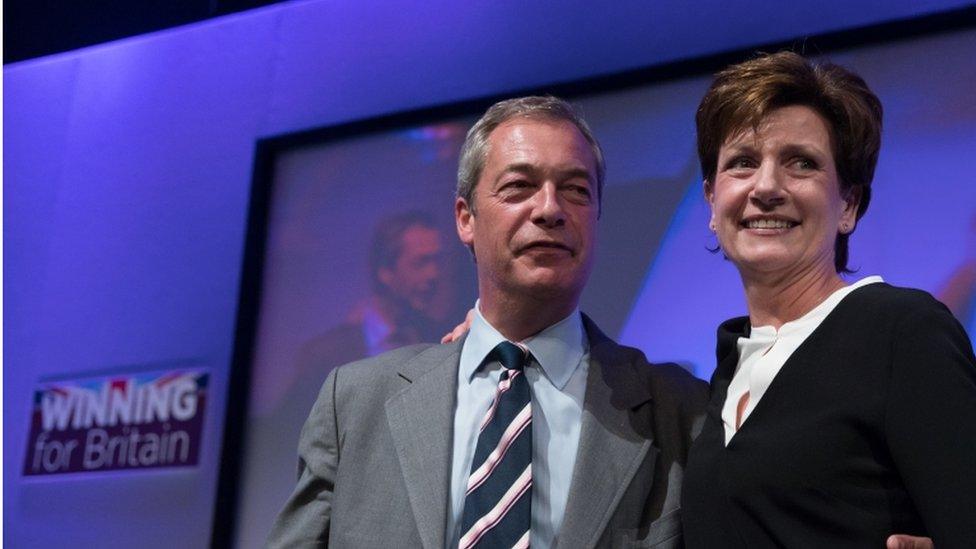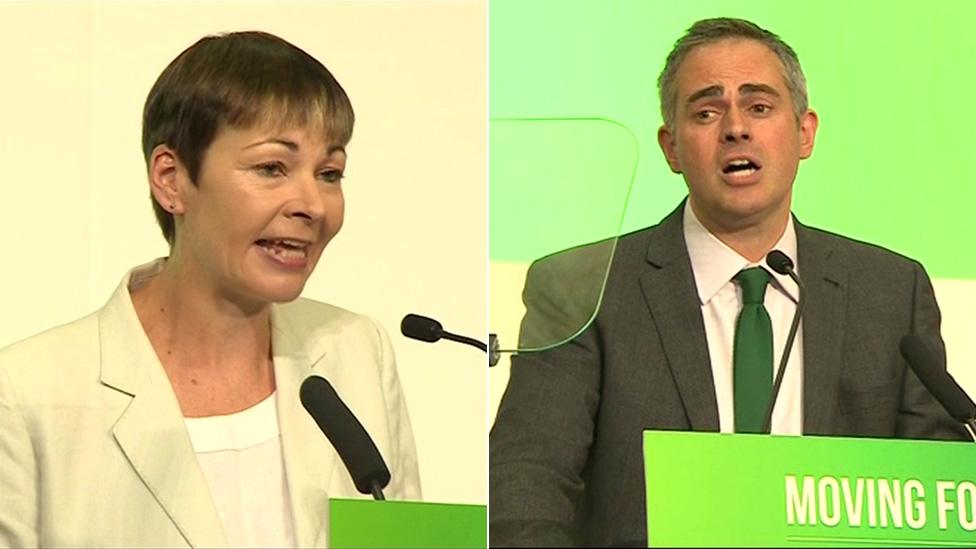Political party conferences 2016: At-a-glance guide
- Published

Here is an at-a-glance guide to the 2016 party conference season...

Conservative conference
In full: Theresa May's conference speech
The headlines:
In her first big conference as leader, the prime minister set out her vision for the party and country, as she vowed to build a "united Britain" in which "fairness is restored"
Home Secretary Amber Rudd set out plans to make firms do more to employ British people - but they provoked a furious backlash from political leaders and businesses.
Chancellor Philip Hammond said he was ready to boost spending and axe his predecessor George Osborne's plans to balance the nation's finances by 2020 to help guard against Brexit "turbulence"
Health Secretary Jeremy Hunt announced plans to increase the number of medical school places by 25% - to 7,500 a year - from 2018, under plans to make England "self-sufficient" in training doctors
Education Secretary Justine Greening announced six "opportunity areas" in England in a £60m scheme to promote social mobility, supporting schools and links with employers
Legal measures to protect UK troops from "spurious" claims of misconduct were unveiled by the government
The PM kicked off the conference on Sunday by announcing that the UK will begin the formal Brexit negotiation process by the end of March 2017
In more depth:

Labour conference
Jeremy Corbyn conference speech in full
The headlines:
After securing re-election as Labour leader, Jeremy Corbyn called on the party and MPs to end infighting and concentrate on taking on the Conservative government. He said Labour should build support by focusing on the needs and aspirations of middle and lower income voters.
London Mayor Sadiq Khan warned members not to get comfortable being in opposition, saying Labour in power meant more affordable housing and transport, less polluted air and better pay and conditions for workers.
Rule changes giving Labour's Scottish and Welsh parties a seat on Labour's governing body, the NEC, were approved after an angry row.
Shadow education secretary Angela Rayner pledged Labour "will defeat" government plans to expand grammar schools in England as selection by ability "entrenches division and increases inequality".
In more depth:

Scottish National Party conference
An emotional Nicola Sturgeon was applauded after announcing her children in care review
SNP Conference: Nicola Sturgeon webcast
The headlines:
The conference began with leader Nicola Sturgeon announcing a consultation on plans for a second Scottish independence referendum.
Later, in her key speech, Ms Sturgeon told her party's conference that she was to undertake a "root and branch review" of Scotland's children in care system.
Scotland's Education Secretary John Swinney said that students from EU countries starting in 2017/18 would pay no fees.
Delegates overwhelmingly backed a motion in favour of decriminalising cannabis for medical use.
In more depth:

Liberal Democrat conference
The Lib Dem leader talked of Brexit, refugees, education and the NHS
The headlines:
Tim Farron used his conference speech to tell Labour voters only the Lib Dems can provide "strong opposition" to the Tories. Mr Farron praised some of the policies of ex-PM Tony Blair, saying Labour had "left the stage" under Jeremy Corbyn
Nick Clegg said the government had "absolutely no clue" how to deal with the Brexit vote, saying they were "up a creek without a paddle, a canoe or a map"
But Vince Cable said he opposed Lib Dem plans to push for another referendum on the UK's future in Europe when the Brexit deal is negotiated
Lord Ashdown said the Lib Dems needed to build alliances with centre-left "progressives" to defeat the Conservatives, saying the party cannot do it alone
In more depth:

UKIP conference
Diane James addresses the UKIP conference after being elected leader
Nigel Farage addresses the UKIP conference for the last time as leader
The headlines:
Diane James was elected UKIP leader, defeating four other candidates
In her acceptance speech, she said UKIP could be the "opposition in waiting" and called on Theresa May to get on with leaving the EU
She also called for unity in the party in Wales, amid infighting involving senior members Neil Hamilton and Nathan Gill
Bowing out as UKIP leader, Nigel Farage said he had given the party "all of me" but while taking a backseat would not be retiring from politics
In more depth:

The Green Party of England and Wales conference
The moment the Green Party elected two leaders on a joint ticket.
Caroline Lucas: No compromise on fracking or nuclear
The headlines:
Caroline Lucas and Jonathan Bartley were elected co-leaders of the party in a job-sharing arrangement, beating five other candidates
In a joint acceptance speech, the pair said the move showed the party was "not bound by tradition" and also called for the Greens to forge alliances with like-minded groups across the political spectrum
Amelia Womack was elected as the party's sole deputy leader
In more depth:

- Published20 September 2016

- Published16 September 2016

- Published2 September 2016
